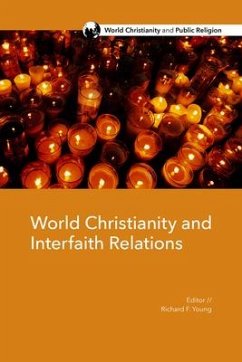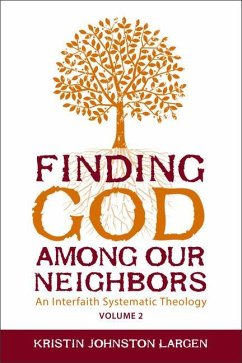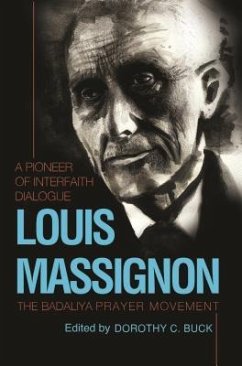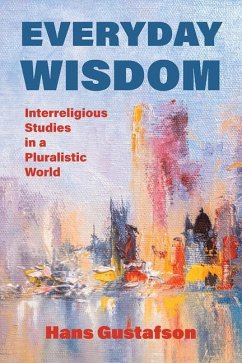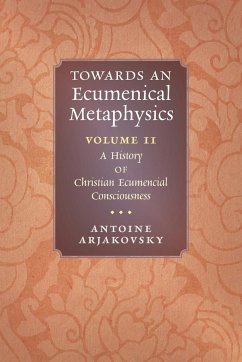
Towards an Ecumenical Metaphysics, Volume 2
A History of Christian Ecumenical Consciousness

PAYBACK Punkte
13 °P sammeln!
Is there a connection between the systemic crisis of globalization and the current "winter" of the ecumenical movement? Conversely, can radical quests for meaning (sometimes transformed into fundamentalist movements) constitute the basis for a spiritual, political, and intellectual renewal of contemporary societies, if understood through an ecumenical metaphysics? In this second volume of Towards an Ecumenical Metaphysics, Antoine Arjakovsky responds to these questions with the help of a historical narrative centered on the history of Christian consciousness. The paradigm of the "ecumenic age"...
Is there a connection between the systemic crisis of globalization and the current "winter" of the ecumenical movement? Conversely, can radical quests for meaning (sometimes transformed into fundamentalist movements) constitute the basis for a spiritual, political, and intellectual renewal of contemporary societies, if understood through an ecumenical metaphysics? In this second volume of Towards an Ecumenical Metaphysics, Antoine Arjakovsky responds to these questions with the help of a historical narrative centered on the history of Christian consciousness. The paradigm of the "ecumenic age" imagined by Eric Voegelin sees human consciousness as the most appropriate place to find meaning in the history of the world. Voegelin particularly underlined the role played by Christian faith in grasping the human consciousness of finitude and orienting it towards divine-humanity. This eschatological conception of history has spread well beyond its purely Judaeo-Christian context and now concerns all peoples on the planet. Anglican theologian John Milbank has shown that the history of Christian consciousness is of decisive importance in understanding the crisis of modernity. For his part, Catholic philosopher Charles Taylor has suggested possible exits from the crisis of post-modernity. A third, more historical narrative, however, is also required to show how Western consciousness has been tormented from within by a ceaselessly challenged quest for truth and glory, for rectitude and justice. This narrative tells of the emergence of the Christian world's ecumenical consciousness, marked by the eschatological quest for the Kingdom of God on earth, by the will of the churches to leave their imprint on the secular world, and by the encounter between grand visions of the world and of the planet. Historically, it is intersected by a dynamic of tensions and ruptures between the different representations of God and the State, of the Church and society, but in our time it can be made fruitful by receiving a vision going beyond this history and by a quest for unity and holiness, for catholicity and apostolicity.






